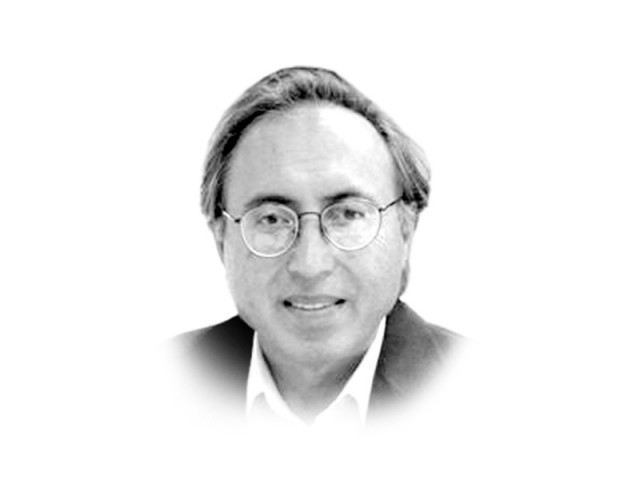Reconciling history
It is our history until we reflect deeply on it, confront culprits, we will remain victims of our own tragic past.

Reconciling history
But why should we only focus on this case alone? Our sad history is replete with cases involving military generals and their civilian proxies — from Ayub Khan to Pervez Musharraf — who hold the state of Pakistan as hostage and run it as their feudal estate. One just needs to closely examine their lust for power, glory and riches to see the ruins of subverted institutions of the state and society, and specifically of democracy, rule of law and constitutionalism. Remember the political mantra: we did this in ‘national interest’. With egos higher than the Everest and arrogance as expansive as the oceans, our generals and their underlings have determined our collective fate as a nation.
What on earth gave them this right? They were driven by nothing other than the power of the gun, the knowledge that there is the law of the jungle and the medieval instincts of conquest — a conquest of their own society that had liberated itself after a very long anti-colonial struggle through the devastation of Partition. The multiple crises of the state and society that helpless generations have successively suffered through, are the tragic result of state capture by the military and its political allies in Pakistan. Make no mistake about it. It is history, our history, and until we reflect deeply on it and confront the culprits, we will remain victims of our own tragic past.
It is sad that we have short memories. A nation that has suffered so many tragedies cannot do any good to itself if it doesn’t learn from its history. Furthermore, we need to reconcile with it by taking real, strong, determined actions against the generals that trashed the constitutions, and those in the civilian sectors that aided, abetted and supported them. This is the only way to get our country back.
Reconciling should not just be about passively accepting what has gone wrong, but bringing the coup-makers to justice. I consider military takeovers nothing other than crime against the nation, state and the constitution and this is exactly the way such acts must be defined in constitutional, legal and moral terms.
It is never too late to reconcile with history. But how do we go about it? Politicians and civil society groups that have true, democratic credentials, must press the government for a judicial commission, or maybe an international commission of notable jurists, that includes Pakistanis, to investigate the four military coups, fix responsibility for each of them and make a recommendation for trial under Article 6 of the current Constitution. I know we cannot dig those responsible out of their graves, but their names and pictures must hang in the hall of national shame. Those still hiding or in exile must be brought before parliament, the courts and the public. Mere apologies will not do.
A determined pursuit of justice is needed for a nation that has suffered tragedies such as the loss of East Pakistan, the Baloch suffering and the Taliban insurgency amongst others. It is true that democracy is the best revenge, but, in our case, reconciling with history is its first pre-requisite.
Published in The Express Tribune, March 10th, 2012.















COMMENTS
Comments are moderated and generally will be posted if they are on-topic and not abusive.
For more information, please see our Comments FAQ